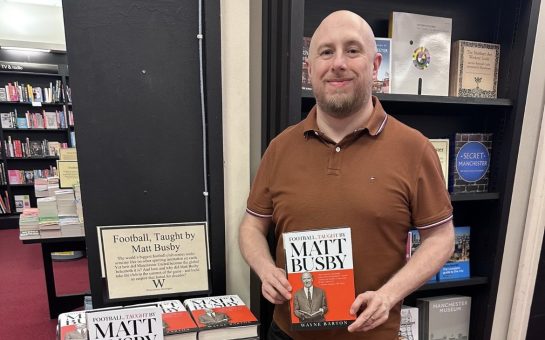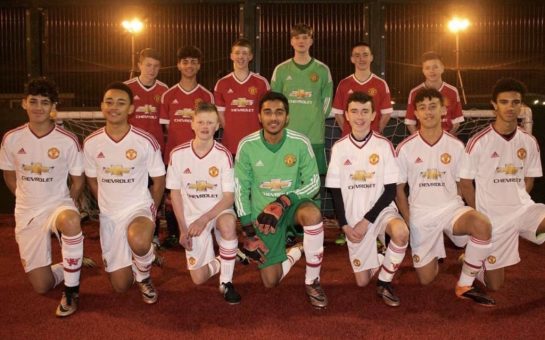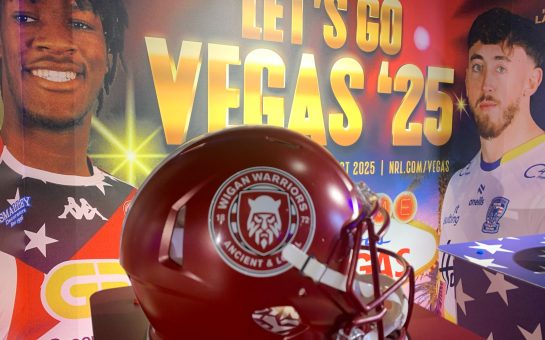For a generation of young Manchester United supporters, the Munich air disaster of 1958 is synonymous with the club’s enormous history and is something that clearly defines the principles seen in the players today.
Last Tuesday, United commemorated exactly 60 years to the day when 23 people including players, staff and journalists lost their lives when Flight 609 collided with a building on an icy afternoon at Munich-Riem Airport.
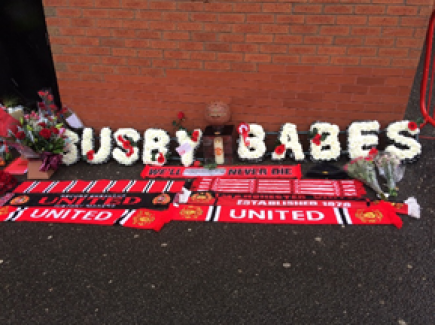
COMMEMORATION AND CELEBRATION: Proud Manchester United fans poured into Old Trafford on Feb 6 to pay their respects
Attended by survivors Sir Bobby Charlton and Harry Gregg, as well as Sir Alex Ferguson, Jose Mourinho and the entire first team squad, the snowy afternoon at Old Trafford represented more than just a commemoration to the fallen but a celebration of the traditions and ethos of what it means to play and support Manchester United.
Speaking to fans after the service, it became apparent that, for those alive and born in and around the time of the tragedy, the crash represented a catalyst for change at the club, sparking an upturn in fans entering the turnstiles of Old Trafford and creating the worldwide support it has today.
David Thompson grew up watching the Busby Babes from his home town in Northern Ireland and recollected the time he saw them on TV when they played in the 1957 FA Cup final against Aston Villa.
Despite losing 2-1 on the day, he described himself as “lucky” when referring to watching the young prodigies on TV when “black and white was a very new thing”.
With this experience, the 75-year-old recollected the day it happened and how the news broke through to his small classroom in Northern Ireland and the substantial reaction that ensued.
“When the news came through, the school was closed down as everyone seemed to be a Manchester United follower. Even at the time, there were Irish players from both the North and South so there was a lot of interest,” he told MM.
“What was very relevant was the days after Munich when Duncan Edwards died. We were all told at school in class and the teacher from the class next door came in and told the headmaster the news and he just shut the whole school as a result.
“That was how significant it was in those days and I imagine that sort of thing wouldn’t happen today.”
On his love for the club and the reasons the Babes were so influential Mr Thompson added: “The legacy is seen worldwide and, even though they weren’t the greatest team in the world or the greatest team in Europe at the time, they certainly were the most loved team as there was never any animosity towards them.
“It was all to do with the fact that they were young boys and that was very new in the game.
“In fact, I remember my grandfather who ran youth clubs in Northern Ireland and, at the time, my brother and I didn’t know which club to follow and we were always looking at magazines.
“He said: ‘Listen boys, you support this team. They’re all young boys and nobody else does that,” and that is how that came about.
“I think it is very important that any manager that runs this club plays young players as it is a big thing and a lot of people don’t realise until they come here just how big that side of the game is at this club.”
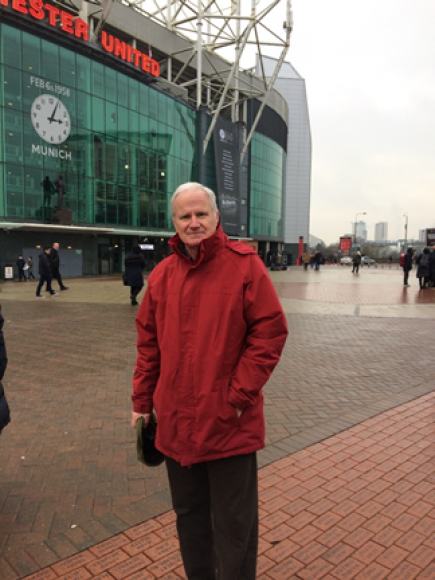
DEDICATED FAN: Northern Irishman David Thompson outside Old Trafford
Salford-born Ken Chapman, who was only three at the time, also spoke about the influence of the Babes and the reaction worldwide.
“I think the whole world recognised that it was a major tragedy as they (the Babes) brought towards us the great feeling that the club had in those days.”
The 62-year-old also added his thoughts about the disaster’s role in the reconstruction of Manchester United and how it acted as a stimulant to the club many of us know and love today.
“We’ve always been called the famous Manchester United and that to me seems to have revolved around the beginnings of what happened after the Munich air disaster.
“In a way, I do feel as though this was the actual catalyst that kicked it into a worldwide club as the whole world began to recognise the warmth and feeling towards this club.
“This was particularly relevant in the way Sir Matt Busby carried on the traditions of the club in the years that were to follow, which culminated in the achievement 10 years later when he reached the goal that he always wanted by winning the European Cup in 1968.
“Ultimately, I feel we carried on from there really and I just feel lucky to be part of this great club.”
VILLAGE GIRL
Other fans spoke of some of their own personal memories of members of Sir Matt Busby’s team prior to the crash and how they were affected by the tragedy.
Alongside his friends, Mark and Iain, Shropshire-born James Allman, 76, said: “Bobby Charlton and Duncan Edwards were taking their national service near my home in Shropshire in the mid-1950s and they served in the Army Camp in Nesscliffe.
“I will always remember the story about Duncan Edwards that I would share with my friends. It was thought that Duncan was very friendly with a girl in the village, although we never knew how friendly though.
“When I found out off the television the day it happened, I was shocked just like everyone else and it was big news as you can imagine.”
His friends and fellow lifelong fans, brothers Mark and Iain Rogers, 54 and 60 respectively, spoke of the influence the Babes had on them as young fans growing up in the 1960s.
“It meant a lot to us as fans growing up in the years after the crash. They (Man Utd) have been my team since I can remember,” Iain told MM.
“The FA Cup final five years after the crash was the first game I can recall when we beat Leicester 3-1, so the memorial means a lot as we come up here very often to continue to support United.”
Mark added of the poignant service: “As usual it was very well staged and beautifully struck.
“It’s what the club do best and I think it was done very professionally.”
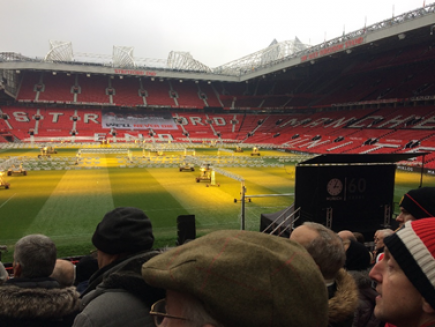
‘WHAT THE CLUB DO BEST’: United fans were left moved and impressed by the 60th anniversary service
Clearly striking a chord with many fans, the service, led by club chaplain Rev John Boyers, left supporters and players alike with these final words on the memory of the Munich air disaster and the Busby Babes.
“We cannot remain in the past.
“We look back and remember as we have today but we must also learn to look forward, to aspire to touch the heights of past excellence again, and go beyond them.
“We should let United’s past be a springboard for the future. The sad memories of today must become a springboard of hope.”

